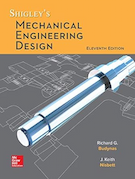The Benefits of Specializing in a Particular Engineering Discipline
Engineering is a vast field with many different disciplines, each with its own unique set of skills and challenges. The field is constantly evolving, with new technologies and techniques emerging all the time. For engineers looking to advance their careers and stay ahead of the curve, continuing education and specialization in a particular discipline can be a great choice. In this article, we will explore the benefits of specializing in a particular engineering discipline and how continuing education can help engineers achieve this goal.

Career Advancement and Increased Job Opportunities
One of the primary benefits of specializing in a particular engineering discipline is career advancement. Engineers who specialize in a specific area have a deep understanding of the skills, technologies, and practices that are critical to success in that field. This knowledge and expertise can lead to opportunities for promotions, higher salaries, and even leadership positions within organizations. By focusing their expertise in a specific area, engineers can position themselves as experts in that field, making them more attractive to employers and more likely to be sought after for challenging and high-visibility projects.
Improved Problem-Solving Skills
Another benefit of specializing in a particular engineering discipline is improved problem-solving skills. Engineers who specialize in a specific area are able to develop a deep understanding of the underlying principles and concepts involved in that field. This knowledge enables them to approach complex problems in a more systematic and effective manner, and to develop solutions that are more effective and innovative. It can also lead to better decision making and greater efficiency in their work.
Increased Confidence and Expertise
By specializing in a particular engineering discipline, engineers are able to develop a level of expertise that can only be achieved through years of experience and training. This increased confidence and expertise can have a significant impact on an engineer's career, helping them to build stronger relationships with clients, colleagues, and superiors. Engineers who are seen as experts in their field are also more likely to be selected for challenging and high-visibility projects, further enhancing their reputation and advancing their careers.
Continuing Education Opportunities
Continuing education is an essential component of any engineer's journey towards specialization. By regularly taking courses and attending workshops or conferences, engineers can continue to build their knowledge and skills in their area of expertise. This can help them stay current with the latest developments in their field, and it can also provide opportunities for networking and professional development.
Online Courses and Certifications
One of the best ways to continue education and specialize in a particular engineering discipline is through online courses and certifications. These programs are designed to help engineers stay up to date with the latest developments in their field and to develop new skills and knowledge. They can be completed at the engineer's own pace and in a flexible format, making them an ideal choice for busy professionals.
In-Person Workshops and Conferences
Another way to specialize in a particular engineering discipline is through in-person workshops and conferences. These events provide engineers with the opportunity to learn from experts in their field, network with other professionals, and stay up to date with the latest advancements. They are also an excellent way to build relationships with other engineers and to stay connected with the latest developments in the field.
Specialized Courses for Deepening Expertise
One approach to continuing education is to seek out courses and training programs that are specifically designed for engineers in a particular discipline. For example, an engineer specializing in structural engineering might take courses in the latest techniques for designing and analyzing structures, such as the use of finite element analysis or dynamic analysis. Similarly, an engineer specializing in electrical engineering might attend workshops and courses on the latest developments in power electronics or control systems.
Specialization and the PE Exam
For engineers looking to become licensed as a Professional Engineer (PE), specialization in a particular engineering discipline can be especially beneficial. The PE exam is designed to test an engineer's knowledge and expertise in a specific engineering discipline, and engineers who have specialized in that discipline are more likely to be well prepared for the exam. In addition, by demonstrating their expertise in a specific area, engineers are more likely to be seen as experts in that field and are more likely to be sought after for challenging and high-visibility projects.
PDH Classroom offers a suite of online continuing education courses tailored to engineers. These courses can be used to fulfill PDH credit requirements for maintaining your PE license, or just as a part of staying ahead in your field.
Specializing in a particular engineering discipline can have numerous benefits for engineers, including deeper understanding and knowledge, increased earning potential, and greater opportunities for professional growth and advancement. By actively pursuing continuing education opportunities, engineers can stay current with the latest developments in their field, and they can continue to build their knowledge and skills in their area of expertise. Whether through specialized courses, professional development opportunities, or other means, continuing education is an essential component of any engineer's journey towards specialization and success.




